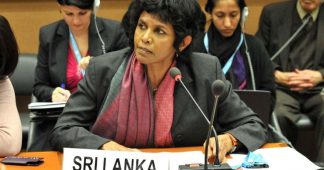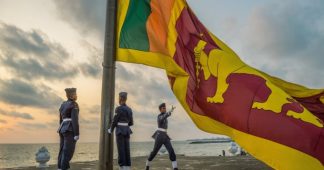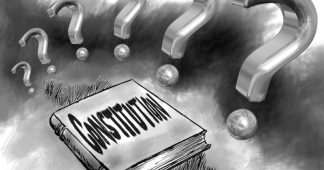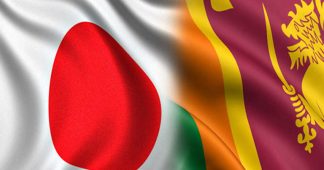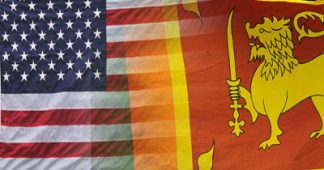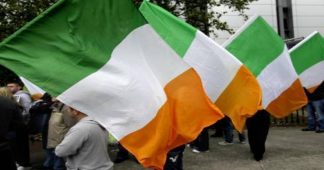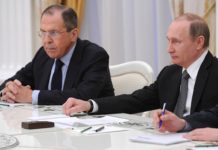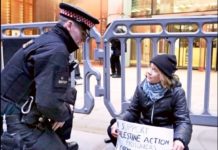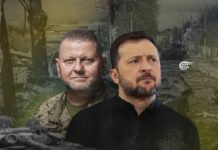Eliya Briefing. Colombo,
30 October 2018
I will express myself on theexternal intervention in Sri Lanka’s political order in the present context andfar-reaching consequences for its sovereignty and independence, which must be taken into account in all its dimensions if an appropriate response is to be formulated.
We are facingblatant external interference in a domestic political process, an actinadmissible to any sovereign state. A climate of insecurity is being created artificially bya deeply unpopular pro-Western regimeto internationalise a purely internal matter by provoking a violent situation that willprovide justification for external intervention to return them to power, if necessary, by force.
‘Special Meeting’
It isunacceptable that an ousted Prime Minister defies a decision by the President andholds a special meeting with a selectedgroup of mostly Western envoys. It is unprecedented that the day after the President removed him and a new Prime Minister was sworn in, foreign envoystook a collective decision to meet formally and jointly with an ousted Prime Minister in an Office that was no longer his.
If an explanation weresought, the normal channel of communication would have been the Foreign Secretary.Had circumstances warranted a meeting at a higher level, they had the choice between the President and the new Prime Minister. Instead, they met with an ousted Prime Minister and together retained a common narrative of events, which they then repeated in a coordinated manner in statements, including joint statements,made by their governments, their allies, international institutions they control, their NGOs, and globally relayed via their mainstream media.
The form and upshot of the ‘special meeting’shows the effort was deliberate and concerted, its purpose to agree on a narrative that helps legitimise external intervention, adding to and reinforcing arguments underlying Human Rights Council resolution 30/1 and application of the controversial norm, the ‘Responsibility to Protect.’
‘Kangaroo Court’ – the Western narrative
In a breach of international law, the ‘Kangaroo Court’determined that the President they once backed, but whohad become an obstacle to their neoliberal re-engineering of the Sri Lankan State on behalf of Western capital, has violated his country’s Constitution. He is deemed to have created a “deadly” situation by removing the Prime Minister, replacing him with the former President whom they accuse of “war crimes” and “a China ally,” and proroguing parliament. The situation is grossly distorted in the international media in particular, through misrepresentation of facts or outright lies. For instance, the killing of a Ceylon Petroleum Corporation employee and injuring of other trade unionists were blamed on Mahinda Rajapaksa, and not on the security officer of the former Minister who tried to enter the premises. Trade unions and government workers supporting the President’s decisions are referred to as ‘mobs.’
Given the coercive Human Rights Council resolution hanging above our heads as a Damocles sword, it is outrageous to presentas an ‘anti-democratic coup’ the legitimate reaction of a peopleto a systematic crisis – economic, financial, social, political, ecological, energetic, institutional, cultural, alimentary – causedby the Western-backed Ranil Wickramasinghe government of which they are victims. In reality, it is popular pressure that caused a partner to the National Unity Government to withdraw, causing its collapse. At its origin is themassive rejection of the anti-popular anti-national policies of the Government on behalf of Western capital, the deprival of their democratic right to express their political will through timely elections, their massive support for Mahinda Rajapaksa and his party as shown in thelocal government elections andmass demonstrations, the multiplication of social struggles – of railway workers, nurses, students, professionals, public servants, plantation workers, etc., etc.
The sole purpose of distorting the reality is to internationalise a purely domestic matter to rescue an ally and thereby protect the West’s geopolitical interests in the region. It is this internationalisation and not the reaction of the peoplethat is‘anti-democratic,’ taking as it does decision-making beyond their reach.
The Western narrative of events, their expressions of concern for human rights and democracy, is not only false, but also hypocritical.
How else would you interpret the sudden warmth displayed toward Sri Lanka’s “constitutional provisions and processes” by rabidpartisans of a new Constitution?
How else would you explain their silence when, in January 2015, the same President appointed a Prime Minister whose United National Front had only 60 seats in Parliament, 46 for UNP, and forced the departure of Prime Minister D.M. Jayaratne, whose UPFA had 144 seats?
How would you explain the solemn undertaking given prior to the August 2015 parliamentary elections that Mahinda Rajapaksa would not be appointed Prime Minister, even in case of a UFPA victory and even if he had the confidence of a majority?
What is the explanation for the West’s silence on the postponement of local government elections for some 3 years, anddelays in holding Provincial Council elections, all under the Premiership of Ranil Wickramasinghe?
How do you explain that the same indignation was missing when Germany was unable to form a government for 5 months,when Belgium had no government for almost 2 years (541 days), and Northern Irelandwas without government for even longer?
What is the explanation for the West’s silence on the Central Bank-Perpetual Treasuries bond scamsunder Ranil Wickramasinghe’s Premiership when he was Minister in charge of the Central Bank and for which his close ally, Central Bank Governor Arjuna Mahendran, has been held responsible and is evading arrest?The bond scams have been described as the biggest ever corruption scandaland biggest-ever cover-up in the history of Sri Lanka.
Why has there been no call for credible investigations by the West on information of a plot to assassinate the President and Gotabhaya Rajapaksa, a plot in whicha Cabinet Minister is allegedly involved?
The ‘special meeting’ between the ousted Prime Minister and the selected group of diplomats is not only a violation of the established rules for foreign envoys for communication with the host country. The meeting, as well assubsequent declarations, can beconstrued as a concerted and deliberate act against the Head of State, openly challenging the authority vested in the President by the people, interfering in internalpolitical processes, and violating Sri Lanka’s sovereignty.
The next step
The attitude displayed by the mostly Western envoys toward the people of Sri Lanka and their leadership is a reflection of the extent to which, under the previous regime, the country has become dependent on the West, submissive and docile toward the very same governments that led a resolution against it. It is of note that instead of seeking the support of his own people when removed as Premier, Ranil Wickramasinghe turned to his mostly Western friends and allies.
The hegemonic interests of Washington and its Western alliesclearly stand opposedto the needs and aspirations of the Sri Lankan people and the interests of the nation.Given Washington’s logic of confrontation with China and Russia, it will be profoundly concerned by the loss of a newfound ally in the region. Under the circumstances, it is essential that we anticipate their strategy. They did not leave us alone before 2015,they did not leave us alone after 2015, and they will not leave us alone now. An alleged “anti-democratic coup” will be waved as additional evidence of Sri Lanka’s “inability and unwillingness” to prevent future violations from occurring, and will serve to justify moving to the ‘next stage’ in external intervention.
The Canadian High Commissioner, David McKinnon, made a direct link to the Human Rights Council resolution. Sri Lanka, he said, must “take concrete steps to meet its commitments to the international community with respect to accountability, transitional justice and ending impunity.”
Similarly, a statement by Human Rights Watch, an organisation massively funded among others by George Soros,the apostle of ‘colour revolutions’ and close ally of Ranil Wickramasinghe,gives a taste of things to come.An article published yesterday in The Island, titledSri Lanka: New Prime Minister Puts Rights at Grave Risk – HRW : Failure to Address Past Abuses Underlies Political Turmoil, quotes its Asia Directorcalling on the West to act to ensure that the “gains” of the regime change they helped bring about in 2015[1] “are not lost.” According to him, Rajapaksa’s appointment has“raised fears about a return to past abusive practices … chilling concerns for human rights … and reopens the door for past abusers to return to their terrible practices”Meanwhile, an important French newspaper warned today of an impending ‘blood bath’ in Sri Lanka.
Crisis as opportunity
Crises are not without risks, but they also provide opportunities. In October 2015, the government chose to break with its natural allies and submitted its people and nation to the humiliation of a coercive resolution demanding radical and all encompassing changes to the state, its institutions, to its very foundation, in favour of Western hegemonic interests. Today, we have been provided with the opportunity to make a different choice, in favour of the people and nation, in favour of the domestic economy upon which the majority of people depend for their livelihood, to respond to expectations of the people that have been ignored by a regime implementing policies conceived by neoliberal ideologues.
Today, Sri Lanka is isolated internationally and viewed with suspicion by its natural allies for having identified itself with Washington’s hegemonic interests,for having abdicated sovereignty and declaring as obsolete the principle upon which the multilateral system is founded. If Sri Lanka is to restore its sovereignty and independence, it must urgently restore the credibility lost by reaffirming, in principle and in practice, its commitment to those multilateral principles – sovereign equality of States, and respect for sovereignty, independence, territorial integrity, non-intervention, and non-interference in the internal affairs of states. The new situation provides us with such an opportunity to rebuild relationships with the like-minded in Asia, Africa, Latin America, and with emerging powers, to join together in a common struggle andestablish a just and equitable international order which respects and guarantees the rights of all peoples to determine their own destiny.
Tamara Kunanayakam
Economist and Expert on international affairs
Former senior UN civil servant
Former Ambassador/Permanent Representative of Sri Lanka to the UN at Geneva
Former Chairperson/Rapporteur of the UN Intergovernmental Working Group on the Right to Development
[1] He refers to them as”governments that helped Sri Lanka’s return to a much more rights-respecting government act”
